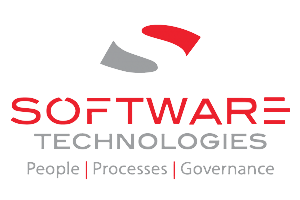Software Technologies Ltd Chief Executive, Jyoti Mukherjee, recently shared her entrepreneurship journey since 1991 in an interview series ‘The Journey so far’ by How We Made It in Africa, which aims to give readers a glimpse in the lives of successful entrepreneurs on the continent.
From the toughest situation she found herself in as a business owner, popular entrepreneurial advice that she disagrees with, to a business opportunity she would still like to pursue, Mrs. Mukherjee gave several insights on her more than three decades experience in Business Technology across Africa.
Here is Jyoti Mukherjee’s story on her Journey so far as covered by How We Made it in Africa.
1. Tell us about one of the toughest situations you’ve found yourself in as a business owner.
In 1991, when I started Software Technologies Limited (STL), we barely had ready young/experienced designers. I overcame this challenge by starting a training division and, later, this became our line of business by starting a subsidiary company – Institute of Software Technologies Limited (IST).
This solution offered us three benefits.
We created resources by picking up good designers, offered them internships and then appointed them as our most-skilled developers. Currently, most of our managers are beneficiaries of this internship programme, [who have grown] into their positions as heads of various departments.
We also assisted our customers to maintain our solutions by providing them with resources from our institute.
And we developed a new line of business – that meant additional revenue.
2. Which business achievement are you most proud of?
Today, STL is an unparalleled leader in designing Kenyan-built solutions for managing people, processes, and governance. Having our intellectual property (IP) and exporting these solutions throughout Africa – and beyond.
Our eHorizon solutions suite – such as eBoard, Mkataba (contract management system) and human resource management system – [offers] state-of-the-art solutions, which embody best practices and best-in-class functionality to compete with any product globally.
We have broken the myth that good software solutions can only come from the West/India/South Africa. Kenyan solutions designed by STL can stand up in the global market with pride.
3. Describe your greatest weakness as an entrepreneur.
Every human has a weakness – I presume [mine] is “not giving up easily”.
When any challenge confronts me as a CEO, I don’t give up easily. At times, it gets costly. However, I have learned to overcome this by delegating and brainstorming with my management team. And I do give up on many decisions – for instance, investing in a data center or not investing in many solutions.
4. Which popular entrepreneurial advice do you disagree with?
Succeed at any cost – or, some say, profitability at any cost.
I believe our success should be based on simple principles that we should not compromise. I learned this from my father: “High thinking, simple living.”
Our integrity towards our customers, our growth values, achieving our goals with a focus on our vision, offer the services and value to our customers more than they expect, valuing our teams and always contribute to society.
This approach may delay our success, but I can vouch it is worth it.
5. Is there anything you wish you knew about entrepreneurship before you got started?
Every journey represents a learning path. No entrepreneur comes with a perfect manual of how to run his or her organisation.
When I started back in 1991, I never knew how to deal with sudden resignations after training team members. I learned to “let go” and continue.
I did not know how to disseminate processes to the team members, for them to be more consistent in their work results. I learned to keep patience and gradually introduced the processes in place.
Team members don’t like processes, to begin with, they dislike to document and they also do not like the reporting.
Today, I am proud that STL and the IST are process-oriented – that is why our solutions have the longest shelf life in the market for software systems.
I did not know how to deal with investments in IP. I learned this by travelling outside Kenya and visiting many IP-oriented companies and learned to add value to our IP assets.
I did not know how to shift rapidly from one technology to the other. In today’s times, technology changes at speed. In the past, by the time we finished one solution; the new technology gave us doubt. I learned to develop our solutions on object-orientated and freedom-to-adopt technology, so that we can shift from one database to another, and change any object with the latest technology.
I believe if we stop learning, we decay and that will be the end of an organisation.
Source: How We Made It in Africa
